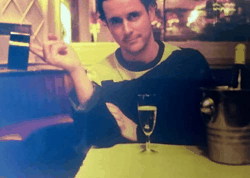Thanks for writing this up Simon! I'm so grateful for you participating because, once again, you've inspired me by providing a useful metaphor for solving the problem through looking at it from the perspective of a foreign domain! But I'm actually a big train nerd and so to answer Vitalik's prompt: > What are specific things that L2s can do to make their relationship between each other and with L1 more collaborative, and maximize positive sum games? ...and to also stay in your Urbanism frame, I'd like to posit that a city's neighborhoods, and here I'm mostly talking about Berlin, reach more collaboration when there are great, multi-modal transportation to transfer between them. In Berlin, for example, I have friends in all parts of the city, and in fact, I often don't even know many people living close by! I've noticed that what makes both New York (which I have visited a few times) and Berlin uniquely connected across "boroughs" are their **subways**. Hey, I'm not a New Yorker and never spent much time there, but when I launched Kiwi I was living in a friend's apartment in Brooklyn, but to get to Manhattan, I noticed that there was an express train that would take me all the way into the city center without any other major stops along the way. Since making that experience, I badly want the same between Berlin Kreuzberg (where I often go to meet friends), and the North of Berlin (where I live). I think subways really differ from any other transportation in a city in that they aren't affected by other traffic and so sometimes, despite me wanting the personal intimacy of a rental car or the convenience of a taxi, or the freedom of a bicycle, I end up taking the subway because it is simply the fastest and most reliable way through the city. What if it rains while I'm on the bike. What if I get into a traffic jam with my Uber or rental car? I find the observation that subways are the "best" mode of city transportation incredible because it is the "iPhone plus rich person" effect of city transportation. They say that the iPhone is the best smartphone one can buy and that no amount of money can buy anything materially better than it. But I very much feel the same way for taking the subway in a city. Unless we're talking about being helicoptered out, in many cases, the subway of a city like New York or Berlin is so fast and independent, it's literally the fastest way through even if money isn't a limiting constraint to your transportation preferences. So I think it can not be overstated how important subways are for cities. They are literally their scaling mechanisms and if you have a sprawling town like Berlin, they're significantly contributing to all Berliners being able to enjoy the greatest parts of the city, without having to also pay their insane rents as an occasional train ticket suffices. I really loved reading Simon’s article! And many thanks for that and participating. Reacting to Tim. Yes, I agree subways are very important for scaling cities. Being from Amsterdam I’m a bike person. Weather or no weather I will bike and won’t let myself be confined sitting and waiting in and for trains and secondly being confined to the routes the trains take. Traveling in Paris and Berlin (and New York) by subway I always had the idea the cities were so vast you couldn’t bike them. But when bike sharing services started popping up and those cities started building more bike lanes and accommodating for bikes I started riding bikes. Suddenly I found these cities were smaller than I thought since the trains mostly don’t take straight routes, but will try to connect as much important geographical stops as they can. Anyway I think the bike is the perfect way to scale a city. It is clean, cheap, versatile, unstoppable and it keeps its inhabitants healthy. Could you travel a scaled blockchain like riding bike? In 2006 I cycled around the city of Beijing, it took me about two weeks. Back then there were still a lot of bicycles, but the Chinese cities were quickly adopting cars. Now when I travel to Chinese cities it’s sad to see all the car congestion. I wish they kept more of the bikes. Maybe the automobile is the worst way to scale? But luckily the Chinese are building subways fast. What would be the car equivalent in blockchain scaling? And what if you combine both subways and bikes and take your bike on the subway? Thanks for the comments! Transport is its own unique metaphor. I see it as talking about bridges in a scaling context: how do you commute in a city? Trains feel like an attempt at decentralized bridges: established paths that cut through a geography. It's more hardcoded and you trust the operators (the city) to operate it safely and effectively. Cars and biking feel choose-your-own adventure. In a sense it could be by bridging through a swap on a centralized exchange or an AMM wrapper and then unwrapping to the other chain. Flexibility. One way biking works as a metaphor is the evolution of intermediary UI and protocols that automatically route your payment to the right chain. Eg, pay mainnet ETH and you get a Zora NFT. In other words, you can arrive at any app, anywhere, without having had to pre-determine the route. So,trains: express, mass bridging. Biking: pay-as-you-go flexible bridging. Cars: needing a specific wallet for every dapp because you need find parking each time. 😅 All fun metaphors to play with! | |







